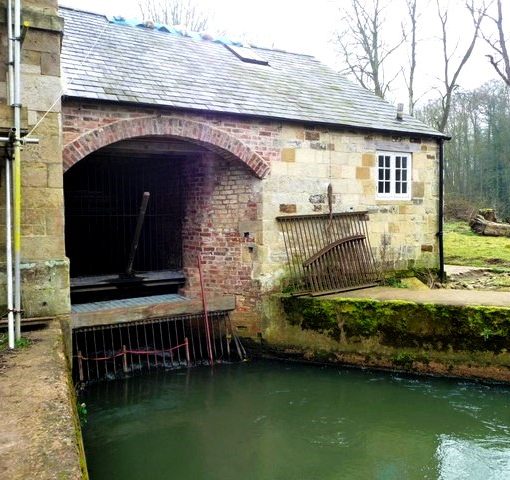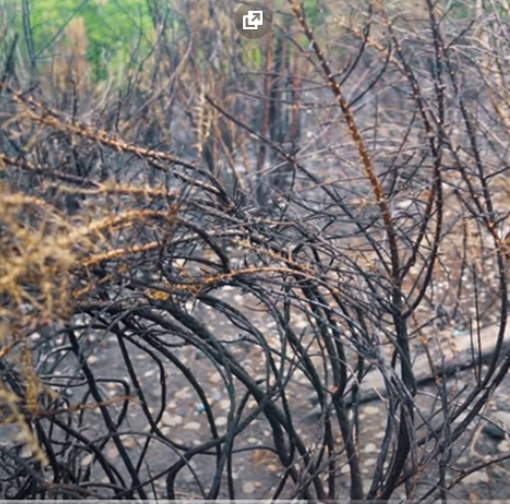End of COP – one set of views. And a new ‘Dear Sir’ section of blog – passion through the pen!
Only one big achievement has been flagged up by the media, as the key point after Cop 27. But I feel there are actually 3 points to make: –
First, that 1.5 degrees as a target was not reiterated, presumably because we all know it can now be seen as a highly unrealistic aim. So, our focus has to be a great deal more on adaptation to a hotter world, rather than kidding ourselves we can switch off fossil fuels fast enough.
Second, there was an achievement of agreed text outlining a commitment to do more financially to help countries in the Global South, who are at the forefront of climate change. I have taken the text below from an interesting article, written from the viewpoint of CEOs of big private companies. I hadn’t realised that the private sector had such a presence in Egypt and I welcome the way they set out the issues and list them as ‘10 top take-aways’. It would be very worthwhile if you look up the section I have quoted here and carry on from that point, if you can make time to do so.
This year, “loss and damage”—which refers to the adverse effects of climate change on nature, people, and developing countries—secured a formal spot on the COP27 agenda. The result was what many are extolling as a unique breakthrough deal to create a fund to pay poorer countries to cope with climate disasters. While debate continues about whether enough was done at COP27 to address the underlying causes of climate disasters, we heard collective agreement from stakeholders on the importance of improved collaboration among the Global North and Global South to ensure parity on the path to net zero.
The third thing to emphasise is what Mckinsey team describe as the “and” element, but I would call simply “Win Win”; when you invest in green energy the AND is that it will also lead to better energy resilience:-
more commitments from both corporates, countries, and coalitions, around the power of the “and” = creating energy resilience and accelerating the net zero transition at the same time.
They link this to Africa: –
Africa is set to take an increasingly pivotal role in the energy transition. Both its greatest challenges and greatest opportunities lie in the fact that its energy infrastructure is still largely under development, and thus a transition towards greener energy alternatives is highly feasible. The orderly energy transition could then unleash the crucial economic growth that the region is committed to, per the 2063 Agenda, becoming an economic, social, and climate win-win-win scenario.
This exciting path of change is already underway: –
The launch of a new African Voluntary Carbon Market initiative is targeting over 1.5 billion credits produced yearly in Africa, leveraging over $120 billion and supporting more than 110 million jobs. Egypt Green, the first integrated renewable hydrogen plant in Africa, has started operation.
NOTE An announcement of policy in autumn 2021 has now evolved into an EU-Mediterranean Renewable Hydrogen Partnership and a plant that is operational.


The Africa section concludes:-
And the African Union, the African Development Bank Group and Africa50 launched the Alliance for Green Infrastructure in Africa, planning to raise $500 million of early-stage project preparation and development capital.
Passion through the Pen
When I sit down to write, although I make sure to acknowledge my own bias on various issues, I do try to refrain from blitzing too furiously about a particular issue or a responsible politician. I might have a serious go at the whole government, occasionally, but generally I aim to provide you with a variety of views from both sides of a topic.
So, I wasn’t sure what to do with a letter, recently received from a friend who knows perfectly well what my gender is, but addressed me as Dear Sir! The right thing seems to be turning it into an occasional feature, similar to the professional interviews recently included, but this time it will be where I give space for someone to have a rant! If you feel passionate about something, send it along!
Wood Burning
Dear Sir
It troubles me that there seems to be an increasing number of houses that are burning wood or solid fuels. With the rises in price of gas and electricity I can see why people may turn to alternatives, however burning anything and releasing the emissions into the environment is something we should no longer be doing.
Problems Associated with Burning wood
Wood burning stoves in urban areas are responsible for almost half of people’s exposure to cancer-causing chemicals found in air pollution particles.
Wood smoke is particularly potent and causes all kinds of ailments besides cancer e.g. oxidative stress, which leads to heart attacks and strokes, obesity, premature ageing, diabetes – anything that has to do with inflammation in the body.
Even new wood burning stoves meeting the “eco-design” standard still emit 750 times more tiny particle pollution than a modern HGV truck. Wood burners also triple the level of harmful pollution inside homes and, according to scientists, should be sold with a health warning.
Research published in the last year has shown wood burning in homes is the single biggest source of small particle air pollution in the UK, producing three times more than road traffic, despite just 8% of the population using wood burners.
If you have a wood burner, please think very carefully about using it. Every time you light it you will be bathing yourselves and your neighbours in highly toxic fumes.
Practically every home in the country has an electrical supply which can be used to power a whole range of cheap, efficient and clean heating devices.
Please act now for the health of yourselves, your neighbours and the planet. Thank you. S.T. Bude.
Alternatives to wood
It is not difficult to imagine what most owners of wood burners might say in answer!
“I have paid a lot of money to buy and install a wood burner and I love the warm glow. I go out of my way to ensure the wood is top quality, very dry. There is rarely a hint of smoke, so is it really that bad? What more, if anything, can I do to mitigate the damage?”
Here are a couple of pointers
Use dry wood and avoid newspapers for lighting up. Use bark, wood chips and firelighters instead. Light up from the top: it reduces particle emissions. Don’t choke the flame (people sometimes do this – reducing the air supply – to allow the fire to burn longer).
And from another source:- ‘If you do things right, you can reduce particle emissions by 50% to 80%. A key point is to give the flame the correct amount of air, as explained in this video:-‘
For anyone who was previously planning to put in a wood burner, would there be a better alternative? It seems there could be!
Bioethanol and other greener solutions
There is an environmentally friendly alternative to a wood burning stove – a bioethanol fireplace. Bioethanol fires are a little-known alternative fireplace proposition available in a range of styles, from traditional to contemporary, with many sizes to fit most rooms.
The source for this is Imagin Fires – https://www.imaginfires.co.uk/blog/the-best-alternative-to-a-wood-burning-fire/#:~:text=There%20is%20an%20environmentally%20friendly,siz
Sorry I don’t know anyone using this system, so cannot comment on how trustworthy their claims are.

Another letter that came this week, very closely related, was about an alternative to oil for home heating. The reader had received an invitation to convert her oil-fired boiler to a greener fuel, which spurred me to undertake a bit of history research.
1900
The first public demonstration of a type of diesel fuel based on vegetable oil was at the 1900 World’s Fair, when the French government commissioned the Otto company to build a diesel engine that would run on peanut oil. The French government was interested in vegetable oils as a domestic fuel for their African colonies. https://www.biodiesel.com/history-of-biodiesel-fuel/#:~:text=The%20first%20public%20demonstration%20of,fuel%20for%20their%20African%20colonies.
But where are we with this option today? One of the most popular heating oil supply companies, Mitchell and Webber, has written to its customers in Cornwall announcing HVO or Hydrotreated Vegetable Oil as a viable alternative to standard oil.

The company has been participating in an HVO demonstration trial, which is being led by trade associations OFTEC and UKIFDA, in partnership with fuel distributors and technicians, as part of the Future Ready Fuel campaign. The industry is self-funding the project and is investing over £800,000.
HVO is derived from used cooking oil and has been certified as sustainable by the International Sustainability and Carbon Certification (ISCC). It immediately reduces emissions by 88% and works in existing oil heating systems, after a simple £500 conversion.


Transition to this low carbon fuel can be completed as part of a normal service and is seen as a more attractive alternative for customers off the gas grid, compared with heat pumps, which can be expensive and disruptive to install and inefficient for homes with poor insulation and low energy efficiency. Each house converting to HVO can save 5 metric tons of carbon p.a.
Here is a fascinating Spotlight TV feature about the Mitchell and Webber trial of HVO in Cornwall.
https://www.facebook.com/watch/?v=588655092966012
How to sign up At the moment this product can only be used for home heating in an approved trial. The two trade associations listed above are calling on the government to back a wider rollout following the announcement that over 100 oil heated properties across the UK have now converted successfully. Click here for more information about the Future Ready Fuel campaign.
And finally, see below info of a different supplier called Speedy Fuels, delivering across the whole of UK and with a chart showing uses for HVO in various vehicles: – https://www.speedyfuels.co.uk/

My own ‘Dear Sir’ communications
Don’t worry, I will not be sharing the whole text of my letters. But I have written two Dear Sir communications, not ranting but trying my very best to explain and promote the Climate Festival idea. If anything comes from them, I will let you know.
ADVANCE NOTICE of 2 things in the first week of December: –
- On 2nd December don’t miss the 2022 Earthshot Prize and award ceremony in Boston. USA. Next time I will describe some of the finalists in the different sections.

- And on Sunday 4th, don’t forget we would really be pleased to see you on the Par Story Walk Adventure. It appears that a mix of trains and Rail Replacement buses will be available from St Austell and buses only between Liskeard/Lostwithiel to the bus stop outside Par Station. These may well prove quicker and more reliable than normal buses, such as Service 24, run by First Bus from Heligan to Fowey. This will leave St Austell at 9.34 and stop near to the Par Track entrance at 10.13. Return to St Austell via the 24 bus at 13.47 or 15.17.





